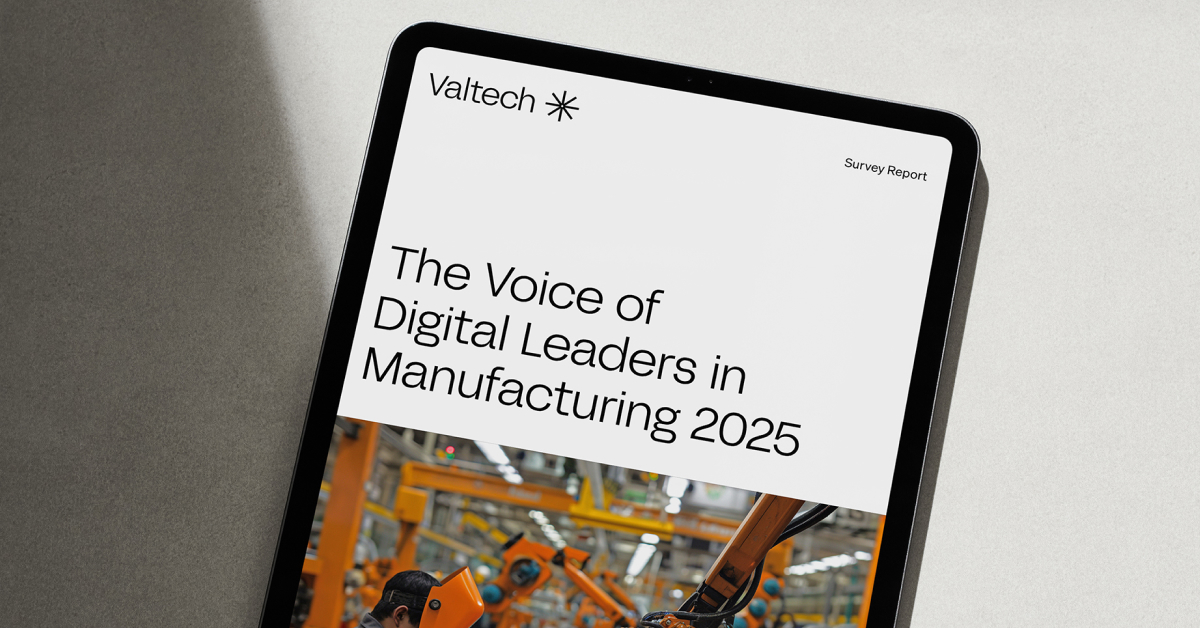To stay competitive, B2B leaders must prioritize smart search capabilities, data foundations and customer experience personalization. These factors are no longer just operational enhancements. They are revenue growth drivers.
According to projections, the global B2B ecommerce market is expected to reach $26.59 trillion by 2030, growing at a CAGR of 17.5%. However, despite this rapid growth, many organizations still struggle with internal digital transformation barriers.
The challenge: B2B complexity slows digital transformation
B2B organizations manage intricate pricing structures, product catalogs and sales journeys, making digital transformation a challenge. According to Valtech’s B2B Evolution: 2025’s Growths Drivers Report, 73% of B2B companies struggle to extract meaningful insights from their data.
While transformation is happening, the roadblocks — internal resistance to change (49%), lack of cross-department collaboration (46%) and digital ownership issues (46%) — often hinder progress. This aligns with broader industry trends, where 49% of B2B companies cite internal resistance as a key digital transformation challenge and 46% struggle with cross-functional collaboration.
However, those who embrace change and invest in AI-powered search, self-service experiences and data governance will establish a competitive advantage.
AI-powered smart search: a sales growth engine
One of the fastest ways for B2B firms to boost revenue is by improving search experiences for customers, partners and employees. B2B search has traditionally been cumbersome due to extensive product catalogs and complex configurations. But AI-powered search, fueled by large language models (LLMs), is changing that.
How AI is making search smarter
-
Natural language understanding (NLU): AI models can process queries in a human-like manner, ensuring buyers find exactly what they need.
-
Personalized search results: LLMs analyze past interactions to display the most relevant products first.
-
Automated product recommendations: AI-driven search suggests complementary products, increasing order value.
Businesses that leverage AI-driven search and product recommendations report a 30% increase in conversion rates and 25% higher average order values. A global CPG brand used AI search to streamline its supply chain, saving millions in raw material costs. When customers can easily find what they need, conversion rates improve.
Furthermore, 80% of B2B companies plan to increase AI investments in the next two years, particularly in search, personalization and automation. This underscores the growing role of AI in optimizing B2B sales and customer experience.
Building a solid data foundation for smarter commerce
For AI search and personalization to work effectively, B2B organizations need clean, structured, and enriched data. Many companies rely on supplier-provided product data, which often lacks the necessary detail buyers require.
Key steps to strengthening your data foundation:
-
Govern and enrich product data: Ensure product listings contain complete specifications, images, and attributes.
-
Implement a data model: Establish a structured way to expose product data to buyers and partners.
-
Enable real-time data processing: Ensure pricing, inventory and product details are accurate and up to date.
Organizations that invest in data harmonization and governance will see increased efficiency, reduced costs and stronger customer loyalty.
The rise of self-service and personalized B2B experiences
The modern B2B buyer expects the same ease of use they experience in B2C eCommerce. Self-service portals, contract-based pricing and AI-driven product recommendations are becoming the norm.
Personalization in B2B ecommerce
-
Custom pricing and discounts: AI ensures buyers see real-time contract prices instead of generic list prices.
-
Personalized product offerings: Data-driven insights recommend products based on past purchases and industry trends.
-
AI-powered chatbots: Intelligent assistants help customers find the right products, just like a human sales representative.
Companies that implement advanced personalization strategies in B2B commerce see a 15% revenue uplift on average. B2B buyers want speed, efficiency and a frictionless experience. Companies that provide hyper-personalized, AI-enhanced interactions will win repeat business and improve margins.
The time to act is now
The B2B landscape is evolving, and those who embrace AI-powered search, data governance and personalization will dominate the market.
The UNLOCK
Insights that drive action
-
Smart search leads to higher conversions and faster sales.
-
A strong data foundation is critical for AI-driven commerce.
-
Personalized self-service experiences drive customer loyalty.
B2B leaders must recognize that digital transformation is not just an IT initiative. It is a business imperative. The right data-driven strategies will turn complexity into competitive advantage and unlock new growth opportunities.
Want to explore how Valtech can help? Contact us today to future-proof your B2B strategy.











